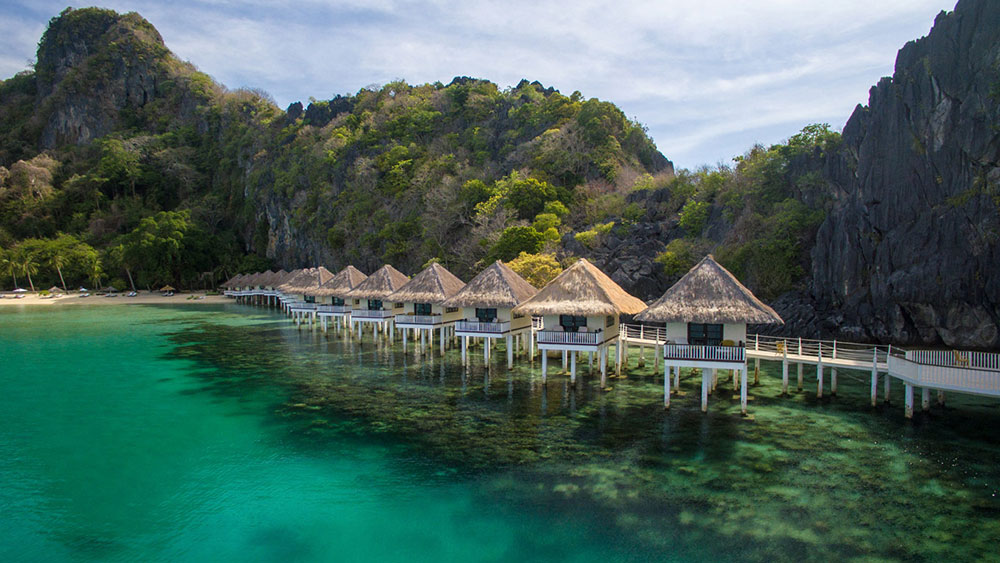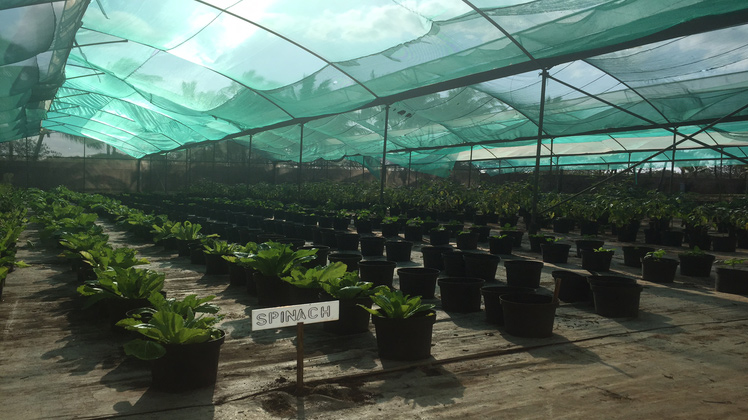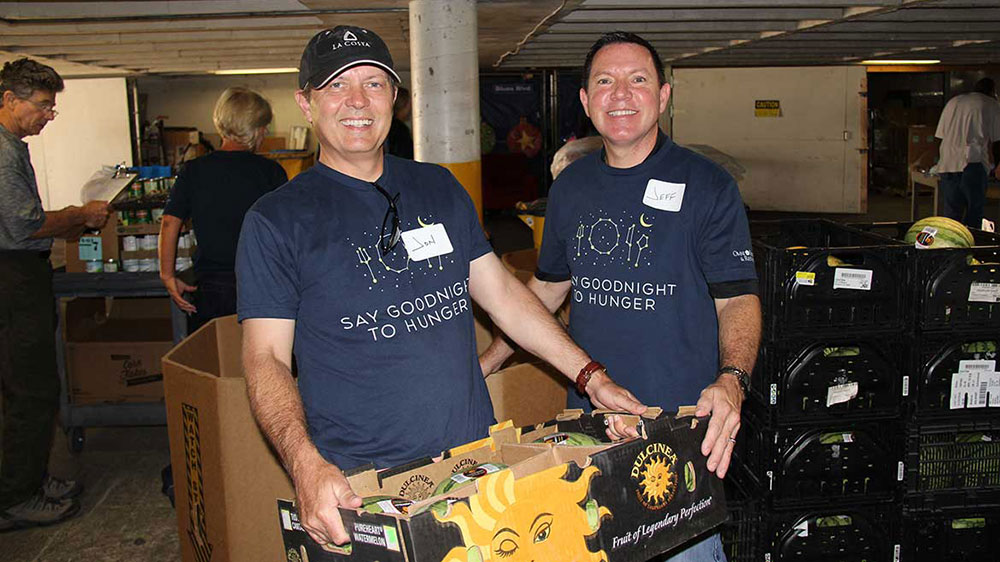by Nancy Huang
Although many hotels make an effort to integrate corporate social responsibility into their operations, there are some that have gone above and beyond. From social enterprise schemes in local communities to sustainability projects that reduce carbon footprints and protect wildlife, the following five hotels showcase remarkable initiatives in environmental and social responsibility.
Good Hotel
Created by two young Dutch designers, Good Hotel is a floating 148-room property that helps the long-term unemployed find work through a custom-made training program. After an initial training phase, candidates are given on-the-job training at Good Hotel (with a full-time salary) before receiving assistance to find permanent work.
This non-profit pop-up hotel was first launched in Amsterdam in 2015, helping 70 long-term unemployed locals reintegrate into the job market. Then last November, the 8 million-kilo floating platform was hauled by a submerged barge across the North Sea to the Royal Victoria Docks in London—its new home for the next five years.
Continuing its previous mission, Good Hotel London is offering local people from every walk of life the opportunity to build confidence and develop the kind of work-based skills employers are looking for. All profits are subsequently reinvested to support each successive intake.
After proving a huge success, Good Hotel has plans to launch a boutique 30-room property in Antigua while a further eight global hotels are planned to open by 2020.
The Magdas Hotel
As the European refugee crisis shows little sign of abating, the Magdas Hotel in Vienna serves as a beacon of hope. Opened in February 2015, this 88-room boutique property (previously a retirement home) is staffed almost entirely by refugees—from the cleaning staff through to the front of house.
The project was made possible thanks to a €1.5m loan from the Catholic charity Caritas and €60,000 in crowdfunding. Volunteers, companies and local neighborhoods all pitched in during the planning and building phase, and much of the furniture was upcycled from the previous residents.
Of the 28 members of staff, 20 arrived in the country as refugees from 14 different nations. Despite living in Austria for years, many had been unable to find work. Asylum-seekers in Austria aren’t allowed to work until their application has been approved, and even when it has, communication issues and a lack of work-based skills often hamper efforts.
To help prepare for an intimidating job market, staff are trained in hospitality and customer service skills, given German and English language lessons, and receive an industry-standard wage. As well as employing refugees, the hotel also offers a sanctuary for young asylum-seekers who have entered the country and are seeking a place to live.
El Nido Resorts
Located in the Palawan archipelago, the exclusive El Nido Resorts has taken the idea of “eco-friendly” to another level, giving guests a “guilt-free” luxury experience.
Each of its four resorts were built using renewable indigenous materials that have been cleverly integrated into the hotel design. For instance, at the Lagen Island property, floors and furnishings were constructed using recycled timber from old Filipino homes.
The resort also has a rainwater catchment system and desalination plant, while the water from low-flush toilets is used to supply fire hydrants and water plants. State-of-the art sewage treatment plants and solar panels are also used to reduce pollution and save energy, while on-site compost facilities provide fertilizer to resort gardens and organic farms.
These impressive sustainability initiatives are supported by ongoing programs, including coastal cleanups and a marine turtle conservation program. To minimize environmental disturbance and damage, El Nido also chooses not to provide motorized boats and jet skis as part of its water sports activities.
The eco-friendly approach continues in the hotel kitchen. Guests can order from a sustainable menu where 60% of the vegetables and 90% of the livestock have been locally sourced and reared, reducing the impact of environmental damage caused by importing produce.
Meliá Zanzibar
Meliá Zanzibar attracts a jet-set crowd looking to soak up dreamy ocean views from its private beach. Like many hotels on the island, it’s helped to boost tourism and increase employment. But at a price. Zanzibar’s tourism industry has also led to environmental damage and conflicts over resource exploitation between communities and investors.
However, this luxury resort has taken major steps to address the issue through its Global Corporate Social Responsibility Model. Various initiatives have been launched to increase employment opportunities for young people, reduce poverty, and improve overall quality of life for locals.
In one example, the hotel invested over €145,000 (approx. $156,000) to boost living standards in the neighboring village of Kairo. Along with building a well to provide fresh drinking water, the village mosque was rebuilt, and homes were renovated with new roofing, toilets and bathrooms.
Meliá is also helping to educate the local community to be more self-sufficient and uses its own greenhouse to teach basic agriculture. The hotel team has also arranged activities at the local school, provided resources to the village football team, and encourages its own guests to visit Kairo to assist in the project’s sustainability efforts.
Omni Hotels & Resorts
When many of the big hotel brands started offering exclusive discounts for booking direct, Omni Hotels used an entirely different incentive to attract guests. Instead, they promised to feed a family of four for a week.
Launched in June 2016, the Say Goodnight to Hunger campaign makes a donation to Feeding America for every direct booking it receives. So far, it’s led to over 3.9 million meals being donated. As part of the initiative, 3,600 of Omni’s associates have also volunteered at local food banks across the U.S. During the launch, hotel guests were also encouraged to support the campaign using the hashtag #SayGoodnightToHunger.
The campaign serves as an extension of Omni Hotel’s ongoing commitment to reducing hunger in local communities. Nearly a third of its properties are already involved in supporting local food banks, which includes volunteering efforts, food drives to collect donations, and fundraising projects that support hunger programs.
In an offer-led industry where discounts are used to drive direct bookings, initiatives such as Say Goodbye to Hunger are intended to offer a more compelling reason to book direct, building customer loyalty by creating an emotional connection with the brand.
Remarkable innovation
These five hotels represent a new standard in social and ecological responsibility. Community projects are providing opportunities to the disadvantaged and supporting some of the most vulnerable members of society. Meanwhile, innovative sustainability efforts and the latest technology are being used to safeguard delicate ecosystems in the face of increasing tourism.
But these unique initiatives go beyond supporting communities and protecting the environment. In addition, they’re also creating a shared sense of purpose among the hotel staff while offering guests a unique and compelling reason to book.






